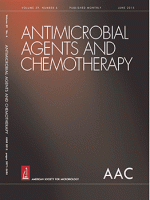
This week in Nature, Daniele Fanelli at Stanford made an interesting proposal: Set up a system of “self-retraction” that makes it crystal clear when a paper is pulled for honest error, rather than misconduct.
Fanelli, a whose work we have frequently covered, rightly notes that honest error represents a minority of retractions — around 20%. To remove any hint that a paper contains misconduct, Fanelli proposes designating self-retractions as those where all authors sign the retraction note:
Continue reading Poll: Should there be a way to “self-retract” for honest error?




 An education journal is pulling a 2014 paper about how US funding partnerships in Africa could alleviate local poverty, after the author admitted to mistakenly lifting sentences from work presented at a 2012 conference.
An education journal is pulling a 2014 paper about how US funding partnerships in Africa could alleviate local poverty, after the author admitted to mistakenly lifting sentences from work presented at a 2012 conference.


